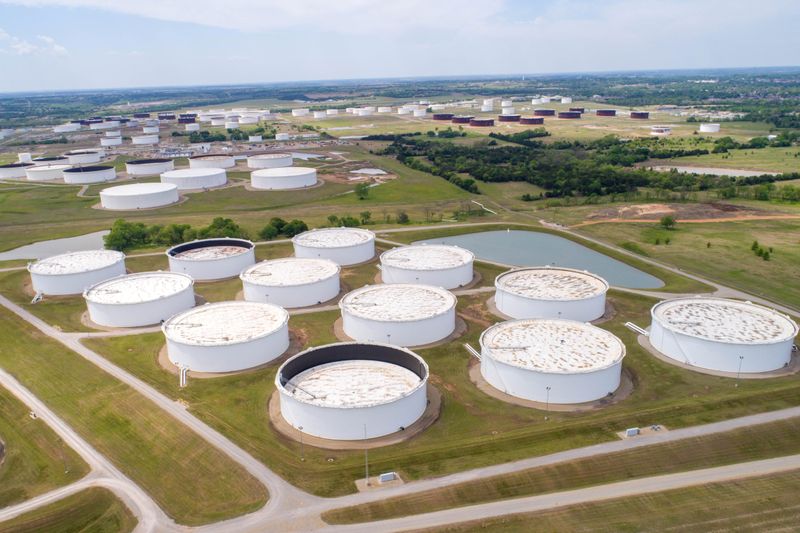By Bozorgmehr Sharafedin
LONDON (Reuters) -Oil prices tumbled by $3 on Monday, their biggest daily fall since June, as a fast-spreading new coronavirus strain that has shut down much of Britain and led to tighter restrictions in Europe sparked worries about a slower recovery in fuel demand.
Brent crude was down $3.00, or 5.7%, to $49.26 a barrel by 1028 GMT, and U.S. West Texas Intermediate (WTI) crude was down $2.92, or 6%, to $46.18 a barrel.
"Reports of a new strain of the coronavirus has weighed on risk sentiment and oil. New mobility restrictions across Europe are also not helping as European oil demand will suffer," said UBS oil analyst Giovanni Staunovo.
"Investors need to be mindful that the road to higher oil demand and prices will remain bumpy," he added.
Brent climbed above $50 last week for the first time since March amid optimism stemming from the rollout of COVID-19 vaccines.
But a new COVID-19 strain, said to be up to 70% more transmissible than the original, has led European countries, Israel and Canada to shut their borders with the UK. Hong Kong is due to ban all flights arriving from the UK from midnight.
"The message is clear: oil prices are still very much and will continue to be at the mercy of the pandemic," said Stephen Brennock of oil broker PVM.
The negative sentiment completely overshadowed a weekend deal among U.S. congressional leaders for a $900 billion coronavirus aid package.
Adding to pressure, the U.S oil and gas rig count, an early indicator of future output, rose by eight to 346 in the week to Dec. 18, the highest since May, Baker Hughes said, reflecting crude prices that have traded above $45 a barrel since late November.

Russian Deputy Prime Minister Alexander Novak said on Saturday that global oil demand was still 6-7 million barrels per day (bpd) below pre-crisis levels.